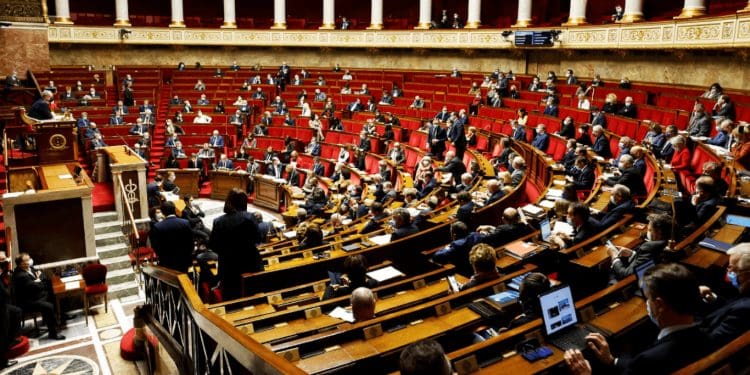- The French crypto space will see laxer provisions on regulatory registration after a vote in the French National Assembly.
- Previously, a stricter amendment was proposed following FTX’s downfall but was scraped.
- The changes proposed to allow a better-adapted regime for the emerging players, said the French digital minister Jean-Noel Barrot.
On Tuesday, the French National Assembly voted in favor of rules that would ease licensing requirements for crypto firms leading to crypto companies following extra conflict of interest and consumer protection rules as of 2023.
The amendment proposed by senator Daniel Labaronne allows crypto platforms to register with the financial regulator following requirements covered by the European Union’s comprehensive regulation for crypto assets, enabling enforcement of licensing.
The French Nation Assembly voted 61 in favor of the proposed measure and 33 against it. However, the move offered a sigh of relief in the crypto space. It represents a softening stance by the French Senate and the Assembly’s Finance Committee, which favored the requirements for companies to hold a compulsory license by October.
Last December, senator Herve Maurey proposed an amendment that would have required a higher-tier license that has yet to be obtained by a single company. Maurey noted that crypto platforms not registered with France’s Financial Markets Authority (AMF) should be obliged to look for a license by October 1 this year. With Maurey’s proposal, the companies required extra governance and financial management checks, which only some crypto firms managed to gain.
Senator Herve worried that crypto firms might register without seeking a license in France to avoid MiCA standards for the further 18 months, given the rules in EU law and were supported by the AMF. However, the crypto space noted that the Senate’s plan was harmful and couldn’t be implemented.
Labaronne’s Amendment
The stern amendment had come in the wake of the demise of the giant crypto exchange FTX, as policymakers called for a crackdown on crypto regulation. Notably, in some of the plans proposed by the Assembly on Tuesday, the crypto firms applying to be registered after January 2024 would face additional rules to control conflicts of interest, separate client assets, and publish their fees. Its author Daniel Labaronne said it represents a halfway measure between registration and full licensing that prepares the ground for MiCA’s arrival.
In Labaronne’s amendment, it stated:
“This amendment looks to select more reliable players for a future registration, without abandoning the authorization system in France for many years.”
Labaronne, who is from President Emmanuel Macron’s Renaissance Party, added that” making a French license entirely compulsory while other members of the EU are moving towards the MiCA under its scheduled timetable would prove ineffective in achieving the goal of protecting consumers.”
MiCA, set to be effective in 2025, would allow an extra 18 months for platforms already registered in France before they comply with structures on governance and reserve management.
Previously, crypto advocates raised concerns that the requirements to obtain a license, including meeting cybersecurity measures and being insured, imposed heavy burdens on the industry and regulators. The French digital minister, Jean-Noel Barrot, said during the debate that changes voted by the French National Assembly allow France to respond to concerns regarding the FTX downfall while enabling a better-adopted regime for emerging players and boosting innovation.














